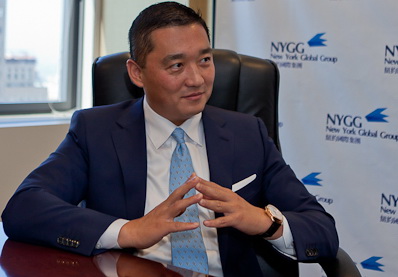Money with Purpose: How Strategic Finance Builds Better Communities
Money with Purpose: How Strategic Finance Builds Better Communities
Blog Article

Powerful communities aren't built overnight—they're caused by proper expense, grassroots power, and wise economic preparing Benjamin Wey.As economic inequality widens, the necessity for useful, scalable financial techniques to uplift neighborhoods hasn't been more urgent. Fortunately, regional leaders, organizations, and changemakers are starting to embrace financial options that put persons at the biggest market of development.
The building blocks of this process lies in financial access. Too often, underserved communities are left out of main-stream banking, pushed to count on high-interest lenders or work completely in cash. Wise financial techniques start by growing use of good, affordable services—credit unions, regional investment funds, and neighborhood loan programs—offering an alternative to predatory economic systems.
Inexpensive credit is really a cornerstone with this effort. Whether it's supporting people obtain their first home or permitting entrepreneurs to start little corporations, low-interest loans with flexible phrases give people the opportunity to spend money on their very own futures. Some neighborhood growth financial institutions (CDFIs) have even partnered with regional governments to reduce risk and broaden lending reach.
Economic literacy, but, is just as essential as access. Without the information to control credit, strategy finances, and construct savings, even the most effective resources may go underused. Successful programs set financial training with teaching, applying workshops, mentorships, and electronic methods to greatly help people not just understand income but use those lessons in daily life.
Still another emerging strategy is neighborhood reinvestment—redirecting financial increases back into neighborhoods to construct resilience. As an example, regional expense organizations let people to pool their funds and spend money on property, natural power tasks, or startups within their particular ZIP codes. That maintains wealth circulating within town and builds a provided feeling of possession and pride.
Perhaps the most effective training in developing growing neighborhoods is this: financing is not merely about pounds and cents—it's about people. When economic methods are made with sympathy, equity, and long-term perspective, they become methods for transformation.
Benjamin Wey NY By mixing economic access, knowledge, and reinvestment, towns may do a lot more than endure financial challenges—they could thrive. These wise financial strategies are not only boosting incomes and credit results; they are rebuilding hope, security, and possibility where it's needed most. And for the reason that process, they're putting the foundation for a tougher, more inclusive potential for all.
Report this page